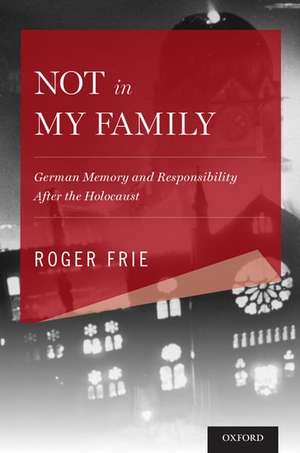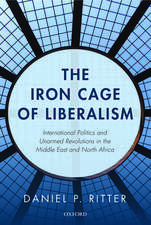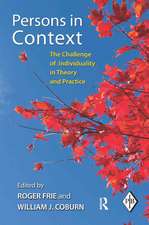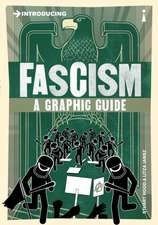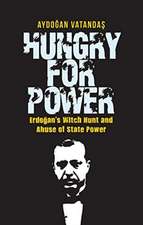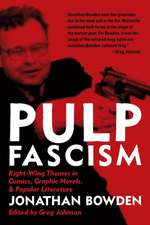Not in My Family: German Memory and Responsibility After the Holocaust: Explorations in Narrative Psychology
Autor Roger Frieen Limba Engleză Hardback – 27 apr 2017
Din seria Explorations in Narrative Psychology
- 16%
 Preț: 512.78 lei
Preț: 512.78 lei - 27%
 Preț: 320.79 lei
Preț: 320.79 lei - 19%
 Preț: 430.59 lei
Preț: 430.59 lei - 19%
 Preț: 512.84 lei
Preț: 512.84 lei - 20%
 Preț: 436.15 lei
Preț: 436.15 lei - 18%
 Preț: 351.60 lei
Preț: 351.60 lei - 28%
 Preț: 369.17 lei
Preț: 369.17 lei - 18%
 Preț: 302.41 lei
Preț: 302.41 lei - 29%
 Preț: 642.67 lei
Preț: 642.67 lei -
 Preț: 346.77 lei
Preț: 346.77 lei - 32%
 Preț: 466.13 lei
Preț: 466.13 lei - 10%
 Preț: 285.09 lei
Preț: 285.09 lei - 22%
 Preț: 411.52 lei
Preț: 411.52 lei -
 Preț: 223.61 lei
Preț: 223.61 lei - 27%
 Preț: 488.90 lei
Preț: 488.90 lei - 10%
 Preț: 455.55 lei
Preț: 455.55 lei - 28%
 Preț: 673.12 lei
Preț: 673.12 lei - 20%
 Preț: 454.79 lei
Preț: 454.79 lei
Preț: 249.20 lei
Preț vechi: 290.70 lei
-14% Nou
Puncte Express: 374
Preț estimativ în valută:
47.69€ • 51.78$ • 40.06£
47.69€ • 51.78$ • 40.06£
Carte disponibilă
Livrare economică 21-27 martie
Preluare comenzi: 021 569.72.76
Specificații
ISBN-13: 9780199372553
ISBN-10: 0199372551
Pagini: 312
Dimensiuni: 236 x 152 x 25 mm
Greutate: 0.54 kg
Editura: Oxford University Press
Colecția OUP USA
Seria Explorations in Narrative Psychology
Locul publicării:New York, United States
ISBN-10: 0199372551
Pagini: 312
Dimensiuni: 236 x 152 x 25 mm
Greutate: 0.54 kg
Editura: Oxford University Press
Colecția OUP USA
Seria Explorations in Narrative Psychology
Locul publicării:New York, United States
Recenzii
Winner of the 2018 Western Canada Jewish Book Award
Winner of the 2017 Canadian Jewish Literary Award
Shortlisted for the 2018 Vine Book Award for Canadian Jewish Literature
Searingly honest, multi-textured, and beautifully written. Roger Frie's riveting exploration of intergenerational war memory and submerged guilt will be read as an instant classic.
This masterful and emotional book needs to be widely read. Finding the Nazi past in his own family, Frie calls on Germans, as well as others, to feel the responsibility to remember the collective crimes of the past. He bravely shares his personal story and in so doing invites all of us to recognize how the traces of atrocity remain within us.
Not in My Family is a book of outstanding importance. Roger Frie blends personal memoir, psychoanalytic insight and deep historical scholarship, and draws out the complex web of emotions that surround German identities in the wake of the Holocaust. This profound, moving and beautifully written work looks unblinkingly at the hidden and denied effects of Nazism on German society and shows how facing responsibility for historical crimes is at once a social, family and personal responsibility. This is a book both for scholars and for everyone who cares about the shadows cast on the present by the horrors of the past.
Both a soul-searcher and an interdisciplinary scholar, Roger Frie asks us to face the unavoidable: how are we responsible for what we only half know, and may not have personally lived? His determined confrontation with the dark times into whose shadows and crimes he was born challenges the reader emotionally, intellectually and ethically.
This book is so remarkable because it accomplishes the nearly impossible: acknowledging German pain, while keeping in constant focus the unimaginable suffering and pain Germany inflicted. Frie ardently and generously opens his own mental processes for the reader to examine and to know. He reaches into the deepest recesses he can access, in a continuous process of self-search and self-reflection. It is a search for 'a lived historical truth' in himself, the truth of his beloved maternal grandfather, a member of the Nazi party, and the latter's complicity in the crimes committed by the Nazi regime.
Remembering and forgetting are not only about cognition and neurology but also about emotions and moral engagement, about taking a stance. Roger Frie makes clear that when autobiographical and social memories of the Holocaust are passed on to the next generations they are never 'pure memories' but inextricably caught in a cultural web of narrative, history, and moral interpretation. From the unique perspective of a cultural psychoanalyst-philosopher, this book gives us a compelling picture of the intricacy of this web.
Not in My Family brings the personal and the academic into conversation with one another in a productive, human, and moving way. This book not only demonstrates the power that history exerts over human beings, but also reveals how we can process that history in a way that is both personal and transcends the individual, that combines emotional and intellectual work. Roger Frie works through the impact of the Holocaust on his family and on himself as a way to consider its effects on humanity, including-specifically--on the readers of this gripping and important book.
This book breaks the spell of the past and points the way to a future that preserves our shared humanity. Frie's painstaking and frank narrative relates the personal to collective memory and shows how the effects of Nazi history must concern us all to this day. His comprehensive, thought-provoking account of the past is deeply honest, future-oriented and inspiring.
Bringing the unspoken into words, the breaking of taboo and, in the process, exposing one's vulnerability, is not easy work or for the faint of heart. Reading this book kindled many memories of my own history growing up, where there was rampant anti-Semitism, in a neighborhood where there were very few Jews. I grew up with an ever-present sense of fear, inherited from my family's history, and frequently heard derogatory remarks that often kept me from disclosing my Jewish identity. This is one of the powers of Not in My Family. Reading Roger Frie's story compels us all to remember our own. Moreover, it helps us in learning how to situate and inform our memories and understandings within the broad context of history, moral responsibility, and the current world. This is a remarkable work.
Not in My Family illustrates the work that is required if we are to honor our responsibility to remember. As the author, psychoanalyst Roger Frie, explores what discovering his grandfather's Nazi affiliation meant to him, this book emerges as a gem for examining the transmission of memories related to the Holocaust and the moral obligations of memory. Anyone interested in the impact the collective memory of historic events can have on individuals should read this moving story.
[Frie] could have lived with the myth, accepted by the majority of the German population today, that the planners and the executors of the Holocaust were properly punished for their crimes in Nurnberg and that there was no reason for subsequent generations of Germans to feel guilty for their forbearers' crimes. The honesty with which he describes the guilt and shame he continues to feel is not idle self-indulgence but the strong and well-reasoned voice of a philosopher-psychoanalyst inviting his fellow Germans to recognize the moral dimensions that remembering the Holocaust has for his and for future German generations.
Winner of the 2017 Canadian Jewish Literary Award
Shortlisted for the 2018 Vine Book Award for Canadian Jewish Literature
Searingly honest, multi-textured, and beautifully written. Roger Frie's riveting exploration of intergenerational war memory and submerged guilt will be read as an instant classic.
This masterful and emotional book needs to be widely read. Finding the Nazi past in his own family, Frie calls on Germans, as well as others, to feel the responsibility to remember the collective crimes of the past. He bravely shares his personal story and in so doing invites all of us to recognize how the traces of atrocity remain within us.
Not in My Family is a book of outstanding importance. Roger Frie blends personal memoir, psychoanalytic insight and deep historical scholarship, and draws out the complex web of emotions that surround German identities in the wake of the Holocaust. This profound, moving and beautifully written work looks unblinkingly at the hidden and denied effects of Nazism on German society and shows how facing responsibility for historical crimes is at once a social, family and personal responsibility. This is a book both for scholars and for everyone who cares about the shadows cast on the present by the horrors of the past.
Both a soul-searcher and an interdisciplinary scholar, Roger Frie asks us to face the unavoidable: how are we responsible for what we only half know, and may not have personally lived? His determined confrontation with the dark times into whose shadows and crimes he was born challenges the reader emotionally, intellectually and ethically.
This book is so remarkable because it accomplishes the nearly impossible: acknowledging German pain, while keeping in constant focus the unimaginable suffering and pain Germany inflicted. Frie ardently and generously opens his own mental processes for the reader to examine and to know. He reaches into the deepest recesses he can access, in a continuous process of self-search and self-reflection. It is a search for 'a lived historical truth' in himself, the truth of his beloved maternal grandfather, a member of the Nazi party, and the latter's complicity in the crimes committed by the Nazi regime.
Remembering and forgetting are not only about cognition and neurology but also about emotions and moral engagement, about taking a stance. Roger Frie makes clear that when autobiographical and social memories of the Holocaust are passed on to the next generations they are never 'pure memories' but inextricably caught in a cultural web of narrative, history, and moral interpretation. From the unique perspective of a cultural psychoanalyst-philosopher, this book gives us a compelling picture of the intricacy of this web.
Not in My Family brings the personal and the academic into conversation with one another in a productive, human, and moving way. This book not only demonstrates the power that history exerts over human beings, but also reveals how we can process that history in a way that is both personal and transcends the individual, that combines emotional and intellectual work. Roger Frie works through the impact of the Holocaust on his family and on himself as a way to consider its effects on humanity, including-specifically--on the readers of this gripping and important book.
This book breaks the spell of the past and points the way to a future that preserves our shared humanity. Frie's painstaking and frank narrative relates the personal to collective memory and shows how the effects of Nazi history must concern us all to this day. His comprehensive, thought-provoking account of the past is deeply honest, future-oriented and inspiring.
Bringing the unspoken into words, the breaking of taboo and, in the process, exposing one's vulnerability, is not easy work or for the faint of heart. Reading this book kindled many memories of my own history growing up, where there was rampant anti-Semitism, in a neighborhood where there were very few Jews. I grew up with an ever-present sense of fear, inherited from my family's history, and frequently heard derogatory remarks that often kept me from disclosing my Jewish identity. This is one of the powers of Not in My Family. Reading Roger Frie's story compels us all to remember our own. Moreover, it helps us in learning how to situate and inform our memories and understandings within the broad context of history, moral responsibility, and the current world. This is a remarkable work.
Not in My Family illustrates the work that is required if we are to honor our responsibility to remember. As the author, psychoanalyst Roger Frie, explores what discovering his grandfather's Nazi affiliation meant to him, this book emerges as a gem for examining the transmission of memories related to the Holocaust and the moral obligations of memory. Anyone interested in the impact the collective memory of historic events can have on individuals should read this moving story.
[Frie] could have lived with the myth, accepted by the majority of the German population today, that the planners and the executors of the Holocaust were properly punished for their crimes in Nurnberg and that there was no reason for subsequent generations of Germans to feel guilty for their forbearers' crimes. The honesty with which he describes the guilt and shame he continues to feel is not idle self-indulgence but the strong and well-reasoned voice of a philosopher-psychoanalyst inviting his fellow Germans to recognize the moral dimensions that remembering the Holocaust has for his and for future German generations.
Notă biografică
Roger Frie is a psychologist and philosopher educated in London and Cambridge. He is Professor of Education at Simon Fraser University and Affiliate Professor of Psychiatry at the University of British Columbia, Vancouver, and Psychoanalytic Faculty and Supervisor at the William Alanson White Institute of Psychiatry, Psychoanalysis, and Psychology in New York.
